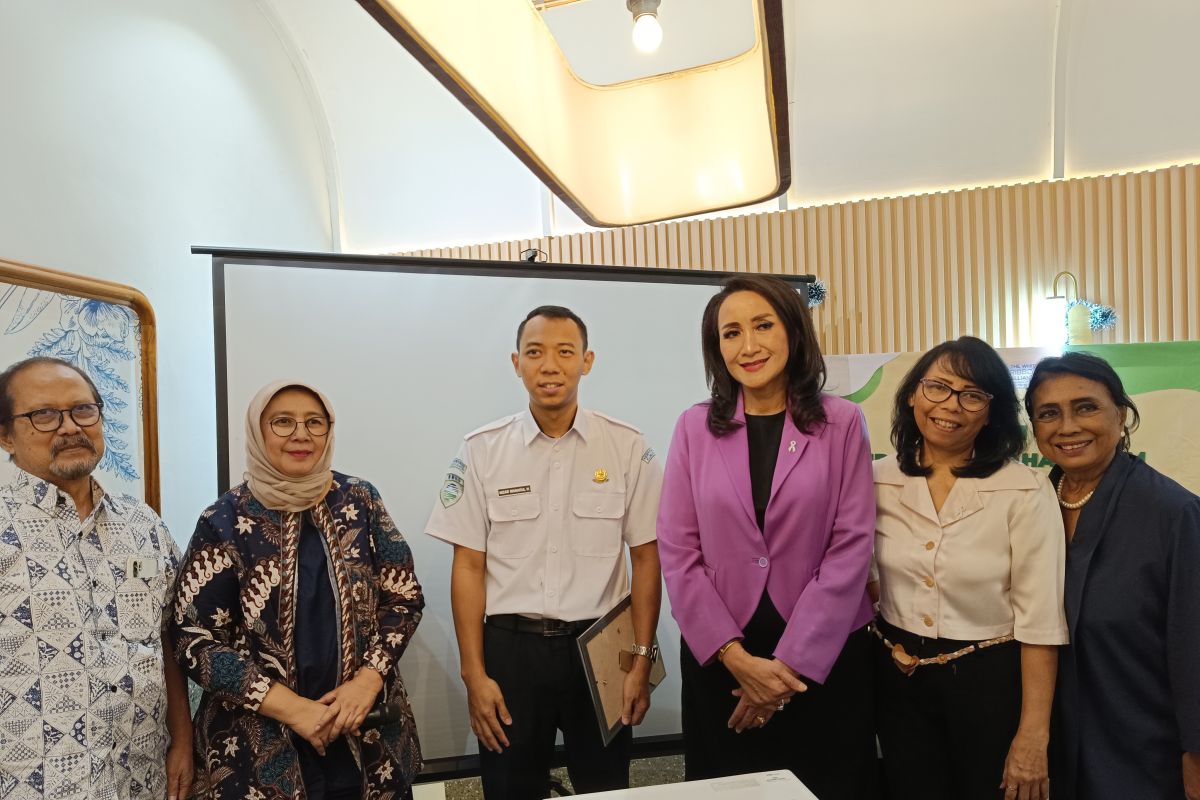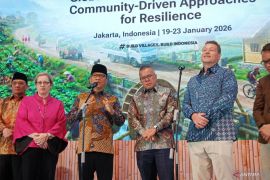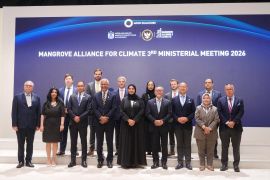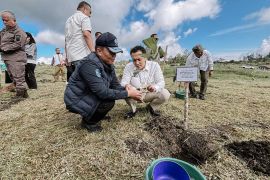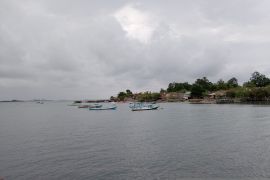Extreme weather, accompanied by the rise in global temperatures, sea levels, and carbon emissions, could directly and indirectly affect the physical and mental health of people—particularly women and children.
The impacts of climate change are projected to exacerbate malnutrition, diarrhea, and mental issues, and claim around 250 thousand lives per year in 2030–2050.
To make things worse, by the year 2050, at least 150 million urban residents may face clean water scarcity due to climate change.
Further, 1.5 billion people will lack access to proper sanitation due to the phenomenon.
“Moreover, climate change could affect reproductive health, causing endocrine disruption,” Dr. M. Baharuddin, a representative from the Budi Kemuliaan Health Institute, said during a discussion on climate change impacts on women.
The discussion was organized by the NGO Pita Putih Indonesia (PPI) in Jakarta.
Endocrine disruption refers to a hormonal imbalance triggered by exposure to chemicals.
It can cause a wide range of health problems in women, such as infertility, prostate cancer, breast cancer, endometriosis, diabetes, polycystic ovary syndrome, early puberty, and obesity.
It is worth noting that climate change poses a threat to humans, irrespective of age.
In the prenatal and postnatal stages, it may increase the odds of premature birth, infant death, low birth weight, congenital disorders, and hypertension during pregnancy.
In childhood and adolescence, the looming global phenomenon could increase the risk of death, trigger malnutrition and respiratory issues, cause mental issues, and disrupt educational activities.
Meanwhile, adults may suffer from heart diseases, kidney illnesses, respiratory issues, malnutrition, and mental health problems on account of climate change.
The phenomenon could also threaten the elderly with metabolism problems, cognitive disorders, and higher risks of heart and kidney diseases.
Dr. Heru Kasidi, PPI’s executive chairman, noted that for Indonesia, climate change impacts, such as the spread of diseases, could lead to economic losses amounting to 3.5 percent of the gross domestic product by 2050.
He highlighted that an increase in temperatures has pushed up the rate of pre-term births in North America, Europe, Australia, New Zealand, the Sub-Sahara region, and China.
In her 2008 paper on Air Quality and Early-Life Mortality: Evidence from Indonesia’s Wildfires, economist Seema Jayachandran highlighted that massive land fires in the country in 1997 caused extreme air pollution.
This, in turn, resulted in over 15.6 thousand child, infant, and fetal deaths, she said. She inferred the number of deaths from the “missing children” in Indonesia’s 2000 Population Census.
On account of heightened humidity brought about by climate change, Indonesia is currently experiencing an increase in the number of tuberculosis and leprosy cases.
As per an observation conducted by the Meteorology, Climatology, and Geophysics Agency (BMKG) last year, the average air temperature stood at 27.2 degrees Celsius.
This points to an anomaly of 0.5 degrees Celsius compared to the 1991–2020 period.
Chairperson of the PPI, Dr. Giwo Rubianto Wiyogo, underlined that women and children are the most vulnerable to the impacts of climate change.
She pointed to UNICEF data showing that Indonesia is among the 50 countries whose children are most susceptible to being exposed to the threats of climate change.
“We have yet to be able to tame the impacts of climate change on the health of mothers and children,” she said.
Thus, it is crucial for all elements of the nation to work hand in hand to amplify narratives about the urgent need to protect women and children from the impacts of climate change.
This can be done by building people’s awareness about the real threats posed by the global phenomenon.
It is safe to say that the fate and future of a nation lie on the shoulders of its women and children.
History, however, has shown that these groups face the biggest burden and ordeal during and after natural disasters and armed conflicts.
With that in mind, there is an urgent need for the government to devise a clear, reliable, and well-calculated strategy to enable its people to mitigate and adapt to climate change, with the objective of minimizing any health issues it may bring.
It is paramount for the government to come up with a systematic and integrated action plan that can guide the state to take preventive and responsive actions against climate change effectively.
That way, the nation can expect its women and children to shield themselves from the increasingly high risk of health issues with a sound level of alertness and preparedness, while ensuring optimum protection for future generations. (INE)
Related news: Brawijaya Univ. develops data system for climate change monitoring
Related news: Ministry highlights gender mainstreaming for climate action
Related news: Need to bolster women's role in climate mitigation: commission
Translator: Indriani, Tegar Nurfitra
Editor: Atman Ahdiat
Copyright © ANTARA 2024
